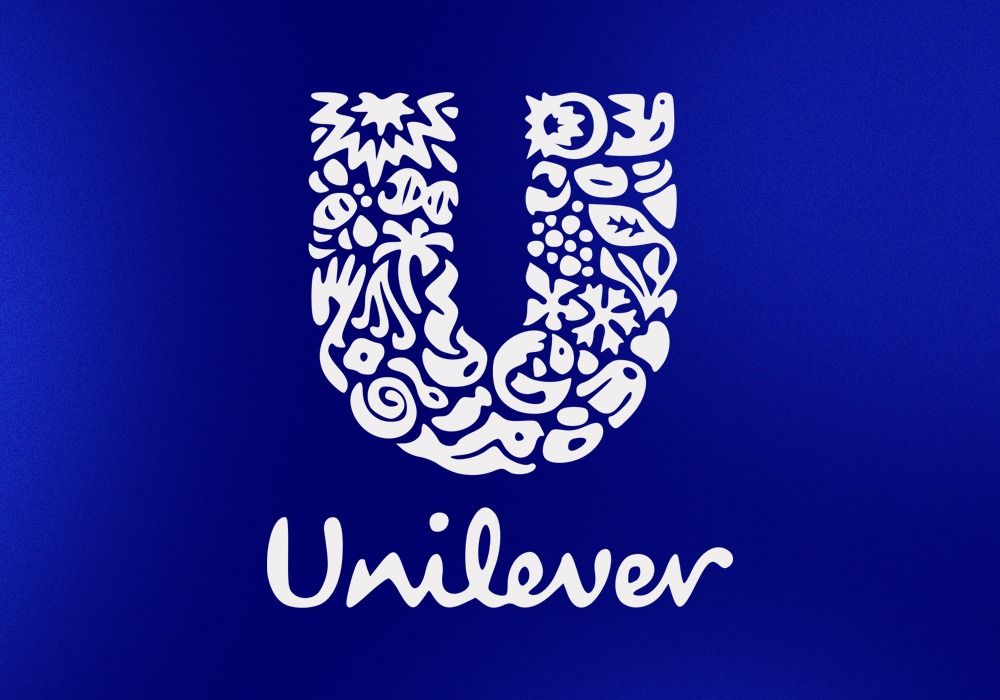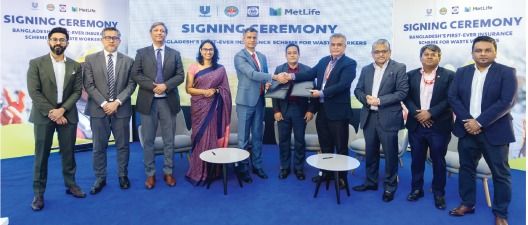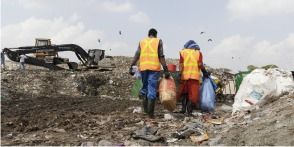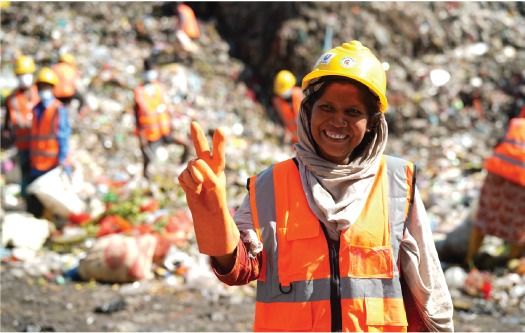- info@ficci.org.bd
- |
- +880248814801, +880248814802
- Contact Us
- |
- Become a Member
- |
- |
- |
- |
- |


Unilever Bangladesh Limited (UBL) proudly announces the launch of Bangladesh's first-ever life insurance coverage for informal waste workers as part of its plastic sustainability in Bangladesh. This programme will provide 1,827 waste workers with life and health insurance coverage, offering financial security, medical support, and dignity in their work.
Since 2020, Unilever has been working in Bangladesh to develop an innovative and scalable model for plastic waste circularity. In collaboration with the Chattogram City Corporation (CCC) and the local NGO YPSA, Unilever Bangladesh is running the country's largest plastic waste management project, managing 10% of the Chattogram city's waste. They designed and established an effective model through which, the company has collected more than 100% of its plastic footprint-70% of which is flexible plastic-for the second consecutive year in 2024. Additionally, the initiative has reached 14,000 families and 950 social institutions with awareness campaigns on waste segregation and has improved the livelihoods of 2,800 waste workers through increased income, health and safety gear, and financial literacy training. Through efforts in reduction, circulation, and collaboration, this model aims to create a closed-loop system for plastic waste, wherein waste is collected, recycled, and reused, ultimately reducing plastic pollution in the environment.
 Plastic waste collection in Bangladesh is largely dependent on the informal sector, where waste workers play a crucial role in keeping plastics out of the environment by collecting, sorting, and reselling materials that would otherwise end up in landfills or waterways. Despite their contributions, they often face precarious working conditions with little recognition or support. Unilever believes that a socially just and inclusive circular economy must address their needs and ensure their integration into formal waste management systems in a fair, ethical, and sustainable manner. Therefore, they have been collaborating with governments, NGOS, and taking steps towards formalising the informal waste management systems in a way that is fair, ethical, and sustainable.
Plastic waste collection in Bangladesh is largely dependent on the informal sector, where waste workers play a crucial role in keeping plastics out of the environment by collecting, sorting, and reselling materials that would otherwise end up in landfills or waterways. Despite their contributions, they often face precarious working conditions with little recognition or support. Unilever believes that a socially just and inclusive circular economy must address their needs and ensure their integration into formal waste management systems in a fair, ethical, and sustainable manner. Therefore, they have been collaborating with governments, NGOS, and taking steps towards formalising the informal waste management systems in a way that is fair, ethical, and sustainable.
A socially just circular economy acknowledges the critical role of informal waste workers, ensuring their rights are respected and their contributions valued within recycling value chains. Everyone deserves a standard of living that guarantees their health and wellbeing, including access to adequate food, shelter, and medical care. However, many waste workers face unsafe working conditions, financial instability, and social stigmatisation, limiting their opportunities for a better livelihood. Addressing these issues requires systemic change, recognising them as key stakeholders and providing necessary protections and pathways for economic advancement.
This initiative highlights the power of shared responsibility, where businesses, governments, and civil society work together to create a sustainable system that benefits both people and the planet. It is a testament to what can be achieved through collaboration and a shared commitment to a socially just circular economy that values and protects those who make sustainability possible.

Looking ahead, Unilever Bangladesh remains committed to expanding its impact and driving systemic change in plastic waste management. The company will continue strengthening partnerships, advocating for policies that support informal waste workers, and investing in innovative solutions to promote a fair and inclusive circular economy-one that safeguards both the environment and the livelihoods of those at its core.





